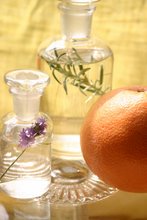Insula, an area of the brain largely ignored by researchers, may hold the key to breaking harmful addictions Scientific American 1/25/07
"A patient who damaged his left insula, a region of the brain located deep within the cortex on either lateral side, may have opened the door to kick the habit without even trying...The day after suffering a stroke the 38-year-old man, who had a 40-cigarette-a-day addiction, reported to doctors that his "body forgot the urge to smoke." ...The insula has long been associated with conscious urges and visceral sensations. According to Steven Grant, a researcher at the National Institutes of Health's National Institute on Drug Abuse, it is also believed to act as a sensory receptor for the internal organs, perhaps remembering the way something tastes or if it upsets the stomach. During imaging studies probing the causes of addiction, the insula often was activated when drug abusers were shown movies of others taking drugs or shown pictures of cocaine, heroin or nicotine...until now researchers had ignored the silver dollar–size region because it was not implicated in reinforcement pathways and did not affect the signaling of dopamine, the neurotransmitter associated with motivation and pleasure..." (Lead author Antoine Bechara) Insula = insular cortex
So all you have to do is induce a stroke in the left insula and voila, addictions are gone. What's amusing is that the researchers have gone out of their way to encourage people to not think that a stroke in that region is the cure for everyone. As if it ever was. Still, discovering the link between this area of the brain and addiction will probably lead to medication. I didn't see in the articles how long it might take to for such medications to arrive on the market... which usually means longer than 10yrs.
A couple articles mention that damage to the insula impairs social function, although they were not clear what that means.
More decent coverage at
SFGate.com,
Science, and
USC NewsDogVitals antioxidant supplement for your dogs health


No comments:
Post a Comment